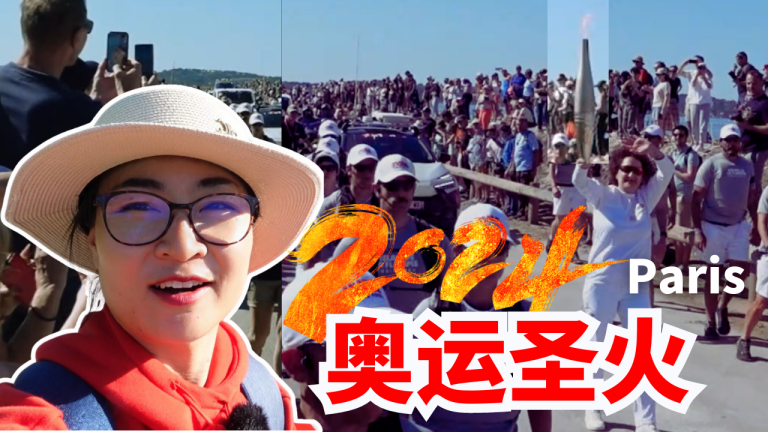作为一名外语学习者,理解Stephen Krashen的“输入假设理论”(The Input Hypothesis)对于学习新语言来说是非常有益的。这个理论提供了一种视角,让我们理解如何更有效地吸收和习得非母语。
As a language learner, understanding Stephen Krashen’s “Input Hypothesis” is immensely beneficial for acquiring a new language. This theory offers a perspective on absorbing and learning a non-native language more effectively.
- 可理解性输入(Comprehensible Input):核心理念是,我们学习语言最有效的方式是通过接触那些稍微超出我们当前理解水平的语言材料。这种材料被称为“i+1”(其中“i”代表当前能力水平)。重要的是这些材料既不能太简单,以至于没有新的学习内容,也不能太难,以至于完全无法理解。Comprehensible Input: The core idea is that the most effective way to learn a language is by being exposed to language material that is slightly beyond our current level of understanding. This material is termed “i+1,” where “i” represents our current ability level. These materials must be neither too simple, lacking new learning content, nor too complex, rendering them completely incomprehensible.
- 语言习得与语言学习的区别:Krashen区分了“习得”和“学习”两个概念。“习得”是一个无意识的过程,我们通过自然地接触和使用语言来习得它,就像儿童学习母语一样。“学习”则是一个有意识的过程,涉及到对语言规则的明确学习和记忆。Difference Between Language Acquisition and Learning: Krashen distinguishes between “acquisition” and “learning.” “Acquisition” is a subconscious process where we acquire language naturally through exposure and use, similar to how a child learns their mother tongue. “Learning,” on the other hand, is a conscious process involving explicit learning and memorization of language rules.
- 情感过滤假设:这部分理论认为,学习者的情感状态(如动机、自信心、焦虑等)会影响语言习得的效率。一个支持和无压力的学习环境有助于降低“情感过滤器”,让语言习得过程更加顺利。Affective Filter Hypothesis: This part of the theory posits that the learner’s emotional state (such as motivation, confidence, anxiety, etc.) affects the efficiency of language acquisition. A supportive and stress-free learning environment helps lower the “affective filter,” making language acquisition smoother.
- 自然顺序:Krashen提出我们习得语言结构的顺序是预定的,与我们学习的顺序无关。Natural Order: Krashen suggests that the order in which we acquire language structures is predetermined and independent of the order in which we learn them. This means that certain language structures are easier to acquire than others, regardless of the learner’s native language.
想象一下,学习一门新语言就像是在玩一款电子游戏。在这款游戏中,你需要通过各种级别,每个级别代表着不同的语言结构,比如语法规则、时态、发音等。Krashen的“自然顺序假设”就像是这款游戏的内置程序,它决定了你需要按照哪个顺序来完成这些级别。
Imagine learning a new language as if you’re playing a video game. In this game, you need to progress through various levels, each representing different language structures, such as grammar rules, tenses, pronunciation, etc. Krashen’s “Natural Order Hypothesis” is like the game’s built-in programming, determining the order in which you need to complete these levels.
这个理论认为,不管你是谁,不管你的母语是什么,大多数人在学习新语言时都会遵循相同的学习路径。有些语言结构就像是游戏中的初级关卡,相对容易掌握;而其他结构则像是更高级的关卡,需要更多的技能和练习。
This theory posits that regardless of who you are or what your native language is, most people follow the same learning path when acquiring a new language. Some language structures are like the game’s beginner levels, relatively easy to master; while others are like more advanced levels, requiring more skills and practice.
例如,对于很多学习英语的人来说,现在时通常比过去完成时更容易学习。这不是因为现在时本质上更简单,而是因为大多数人在语言习得的过程中先接触并理解现在时。
For instance, for many learning English, the present tense is usually easier to learn than the past perfect tense. This isn’t because the present tense is inherently simpler, but because most people are first exposed to and understand the present tense in the process of language acquisition.
这个概念的关键在于,语言习得是一个自然而然的过程,而我们作为学习者,无法完全控制这个过程。就像在游戏中,你可能想要直接挑战高级关卡,但你需要先通过基础关卡来积累技能和知识。
所以,当你学习一门新语言时,理解这种“自然顺序”可以帮助你更有耐心和策略地学习。不是所有的语言结构都可以一蹴而就地掌握,有些可能需要更多时间和实践。这个理论提醒我们,语言学习是一个逐步的过程,我们应该顺其自然地逐渐提高我们的能力。
The key concept here is that language acquisition is a natural and spontaneous process, and as learners, we don’t have complete control over it. Just like in a game, you might want to jump directly to advanced levels, but you need to go through the basic levels first to accumulate skills and knowledge.
想象一下,学习一门新语言就像是在玩一款电子游戏。在这款游戏中,你需要通过各种级别,每个级别代表着不同的语言结构,比如语法规则、时态、发音等。Krashen的“自然顺序假设”就像是这款游戏的内置程序,它决定了你需要按照哪个顺序来完成这些级别。
Therefore, when learning a new language, understanding this “natural order” can help you be more patient and strategic in your learning. Not all language structures can be mastered instantaneously; some may require more time and practice. This theory reminds us that language learning is a gradual process, and we should naturally progress and enhance our abilities step by step.
这个理论认为,不管你是谁,不管你的母语是什么,大多数人在学习新语言时都会遵循相同的学习路径。有些语言结构就像是游戏中的初级关卡,相对容易掌握;而其他结构则像是更高级的关卡,需要更多的技能和练习。例如,对于很多学习英语的人来说,现在时通常比过去完成时更容易学习。这不是因为现在时本质上更简单,而是因为大多数人在语言习得的过程中先接触并理解现在时。这个概念的关键在于,语言习得是一个自然而然的过程,而我们作为学习者,无法完全控制这个过程。就像在游戏中,你可能想要直接挑战高级关卡,但你需要先通过基础关卡来积累技能和知识。所以,当你学习一门新语言时,理解这种“自然顺序”可以帮助你更有耐心和策略地学习。不是所有的语言结构都可以一蹴而就地掌握,有些可能需要更多时间和实践。这个理论提醒我们,语言学习是一个逐步的过程,我们应该顺其自然地逐渐提高我们的能力。
作为外语学习者,这些概念帮助我们理解,为什么仅仅学习语法规则和词汇列表可能不足以流利地掌握一门语言。相反,我们应该寻求接触大量适度挑战性的实际语言材料,比如书籍、电影、对话等,这些可以提供自然而真实的语言环境。同时,维持积极的学习态度和自信心也是非常重要的。通过这样的方法,我们可以更自然、更有效地学习和使用新语言。For us as foreign language learners, these concepts help us understand why merely studying grammar rules and vocabulary lists may not be sufficient for fluency in a language. Instead, we should seek exposure to a substantial amount of suitably challenging real-life language materials, such as books, movies, and conversations, which provide natural and authentic language environments. Maintaining a positive attitude and confidence in learning is also crucial. We can learn and use a new language more naturally and effectively through such methods.










One Response
向大家介绍每日中文课的学员:神马。他组织了一个中文演讲俱乐部。感兴趣的朋友欢迎点击链接,进一步了解
https://vancouvermandarinlearners.toastmastersclubs.org/
https://www.meetup.com/mandarinchinese/events/298367200/